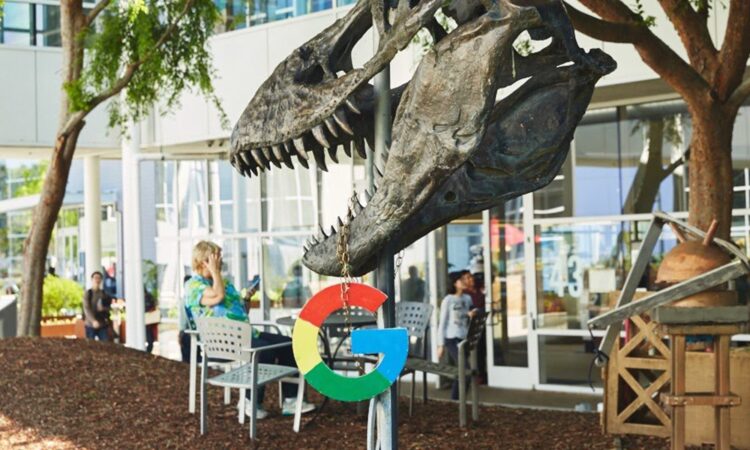If You Invested $10,000 in Alphabet 10 Years Ago, This Is How Much You Would Have Today

The company’s services attract billions of users, consistently boosting earnings and its stock price.
There’s no denying Alphabet‘s (GOOG -1.10%) (GOOGL -1.23%) potent position in tech. The company’s $1.9 trillion market cap makes it the fourth most-valuable company in the world, illustrating the brand power of platforms like YouTube, Android, and Chrome, and the many services under Google. Time and time again, the stock has proved itself to be a valuable long-term holding.
Data by YCharts.
The company’s share price has soared 489% over the last decade, meaning a cash investment of $10,000 in 2014 would be worth nearly $59,000 today, considerably outperforming the S&P 500 and Nasdaq Composite.
But is it still worth investing in Alphabet, or is it too late? Let’s take a closer look at the business to determine if its stock is still a buy.
A long list of potent names has made Alphabet an advertising powerhouse
Alphabet hit the jackpot when it launched its search engine Google in 1998, becoming a gateway to the internet for billions of users. And the company has done well to retain its market dominance, with an 82% share among search engines.
The success of Google has allowed Alphabet to branch out to other markets, including smartphone operating systems, online video sharing, cloud computing, productivity software, and more. But its smartest move has been leveraging the massive user base it has built with these services to become a digital advertising powerhouse.
The company is now home to nine platforms that each have more than 1 billion users, giving it nearly endless opportunities to sell ads.
Data from Statista shows the digital advertising market is projected to reach more than $740 billion this year, with spending expected to rise to $871 billion by 2027. And Alphabet holds a leading 26% market share in this sector, so it’s prepared to continue serving this ad market and profit from its growth.
Benefiting from the tailwinds of AI
Since 2019, annual revenue has risen 90%, while operating income increased by 135%. In that time, its free cash flow has climbed 151% to $69 billion. The chart below compares that last figure to those of some of its biggest rivals.
Data by YCharts.
This impressive growth can largely be attributed to the success of Alphabet’s digital ad business. And it could also suggest that the company is better equipped than its competitors to keep expanding and invest in budding technology like artificial intelligence (AI).
According to Grand View Research, the AI market reached a valuation of close to $200 billion last year and is expanding at a pace to reach nearly $2 trillion by 2030. So it’s a promising sign that Alphabet is focusing on monetizing this technology.
The company launched its most advanced AI model, Gemini, earlier this year. And it reportedly plans to consolidate its Deep Mind and its Research teams to further strengthen its AI capabilities.
Reuters said that Alphabet will move its Responsible AI teams, which focus on safe AI development, from Research to DeepMind to be closer to where AI models are built and scaled up.
There are multiple practical uses for the technology that could bolster its earnings in the coming years. For example, improving its AI capabilities could further secure the company’s hold on the search engine market by creating a Google Search experience closer to OpenAI’s ChatGPT.
AI could also enhance Google Cloud, make its ads more effective for marketers, and improve users’ experience on YouTube with better video recommendations. If done right, Alphabet could elevate its entire business with AI, and boost its stock price over the long term.
Data by YCharts; PE = price to earnings.
This chart suggests Alphabet’s stock is one of the best investments on the basis of value when compared to those three peers in big tech. It has the lowest forward price-to-earnings ratio and price-to-free cash-flow, indicating its shares are a relative bargain.
Although the stock has skyrocketed over the last decade, its potent position in tech and the emergence of AI suggest that it’s not done yet. Alphabet is a screaming buy right now.
Suzanne Frey, an executive at Alphabet, is a member of The Motley Fool’s board of directors. Randi Zuckerberg, a former director of market development and spokeswoman for Facebook and sister to Meta Platforms CEO Mark Zuckerberg, is a member of The Motley Fool’s board of directors. John Mackey, former CEO of Whole Foods Market, an Amazon subsidiary, is a member of The Motley Fool’s board of directors. Dani Cook has no position in any of the stocks mentioned. The Motley Fool has positions in and recommends Alphabet, Amazon, Meta Platforms, and Microsoft. The Motley Fool recommends the following options: long January 2026 $395 calls on Microsoft and short January 2026 $405 calls on Microsoft. The Motley Fool has a disclosure policy.





